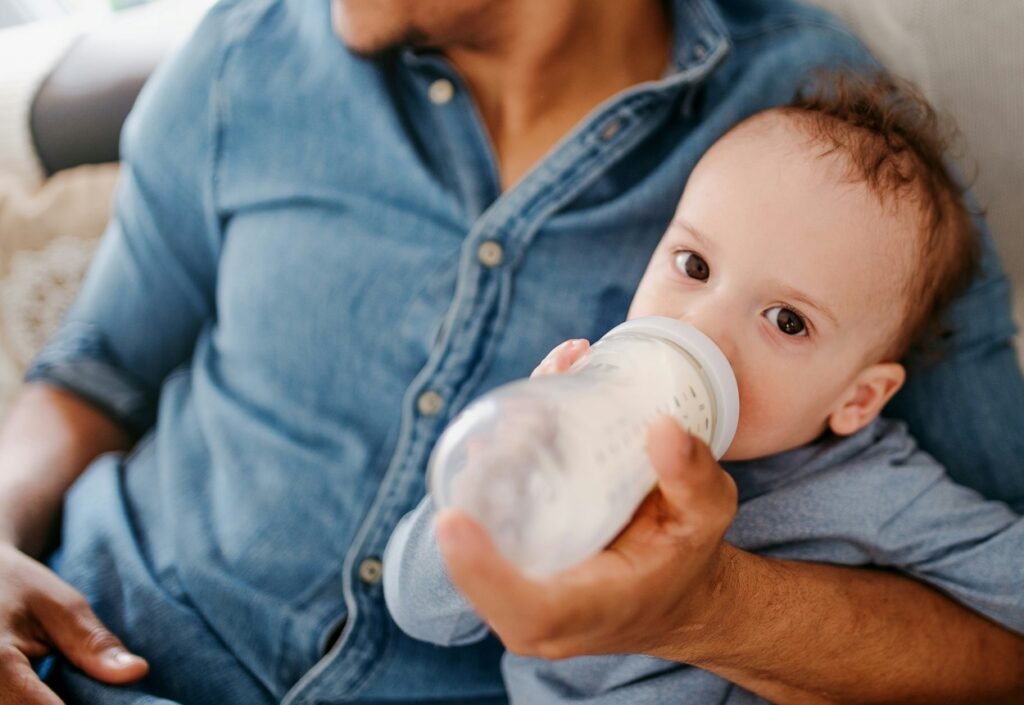From those adorable little coos to the not-so-adorable diaper explosions, welcoming a newborn into your life is a whirlwind of experiences. But let’s address one of the less glamorous aspects: the nose-wrinkling, eye-watering phenomenon of foul-smelling baby farts.
Yes, you read that right. Your sweet bundle of joy can produce some seriously stinky gas. So, what’s behind this aromatic mystery? Let’s dive in and unravel the secrets of newborn flatulence.
What Makes My Newborn Baby’s Farts So Stinky?
Babies may be tiny, but boy, can they pack a punch in the gas department! The blame for those noxious fumes lies primarily with their developing digestive system. You see, newborns’ digestive systems are like tiny factories still fine-tuning their processes.
As they adjust to life outside the womb and transition from an all-liquid diet to milk (whether breast or formula), their guts are working overtime to figure things out. And in the process, they produce some potent gases that would put even the most seasoned chili eater to shame.

Why Does My Baby’s Diet Impact the Odor of Their Gas?
Now, let’s talk about what goes into your little one’s tummy. Whether your baby is breastfeeding or bottle-feeding, the nutrients they consume play a significant role in the aroma of their gas. Breastfed babies, for example, might produce gas with a slightly milder scent compared to their formula-fed counterparts.
Why? Breast milk is easier to digest, so there’s less fermentation happening in the gut, resulting in less odorous gas. On the other hand, formula-fed babies may produce gas that’s a bit more pungent, thanks to the complex proteins and sugars present in the formula.
How Does the Microbiome Influence My Baby’s Flatulence?
Ah, the microbiome – that bustling community of bacteria residing in your baby’s gut. While these microscopic tenants play a crucial role in digestion and overall health, they can also contribute to the olfactory assault emanating from your little one’s nether regions. In newborns, the microbiome is still in its infancy (pun intended), undergoing rapid development and colonization.
As the balance of bacteria shifts and evolves, it can lead to fluctuations in gas production and odor. Think of it as a tiny ecosystem finding its equilibrium – albeit with some rather fragrant side effects.
Is Swallowing Air During Feeding Responsible for My Baby’s Gas?
Babies are notorious for their enthusiastic sucking – whether it’s during feeding or soothing themselves with a pacifier. But along with that milk or formula, they often gulp down a fair amount of air. And where does that air end up? You guessed it – in the form of gas bubbles waiting to make their grand exit.
So, if your little one seems to be belching and farting up a storm, blame it on their voracious appetite for both food and air.

What Role Does Baby’s Immature Digestive System Play in Gas Production?
As if navigating the twists and turns of parenthood weren’t challenging enough, your baby’s digestive system decides to throw in its own curveballs. Unlike adults, newborns have immature digestive systems that take their sweet time to process food.
This leisurely pace allows for more fermentation in the gut, leading to the production of gases like methane and hydrogen sulfide – the same compounds responsible for that distinctive odor you’re all too familiar with.
The Bottom Line: Embrace the Stench
So, there you have it – the not-so-fragrant truth behind your newborn’s potent flatulence. While those baby farts may clear a room faster than a fire alarm, rest assured that they’re entirely normal. As your little one’s digestive system continues to mature and adjust, you may notice a gradual decrease in both the frequency and intensity of their gas emissions.
In the meantime, stock up on those diaper pails, invest in some quality air fresheners, and remember to cherish every moment – stinky farts and all. After all, it’s just another quirky quirk that makes parenthood the wild ride that it is.
